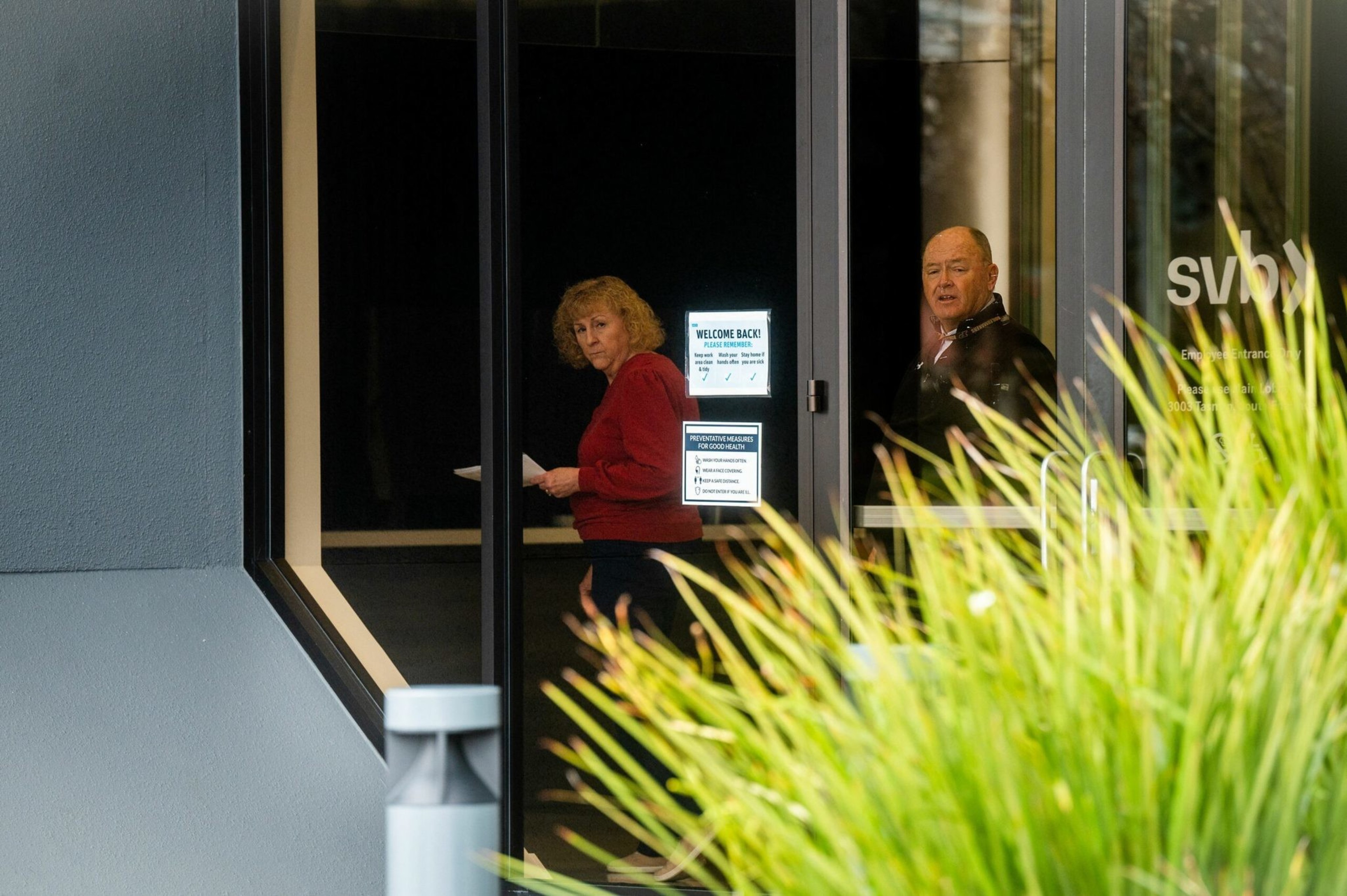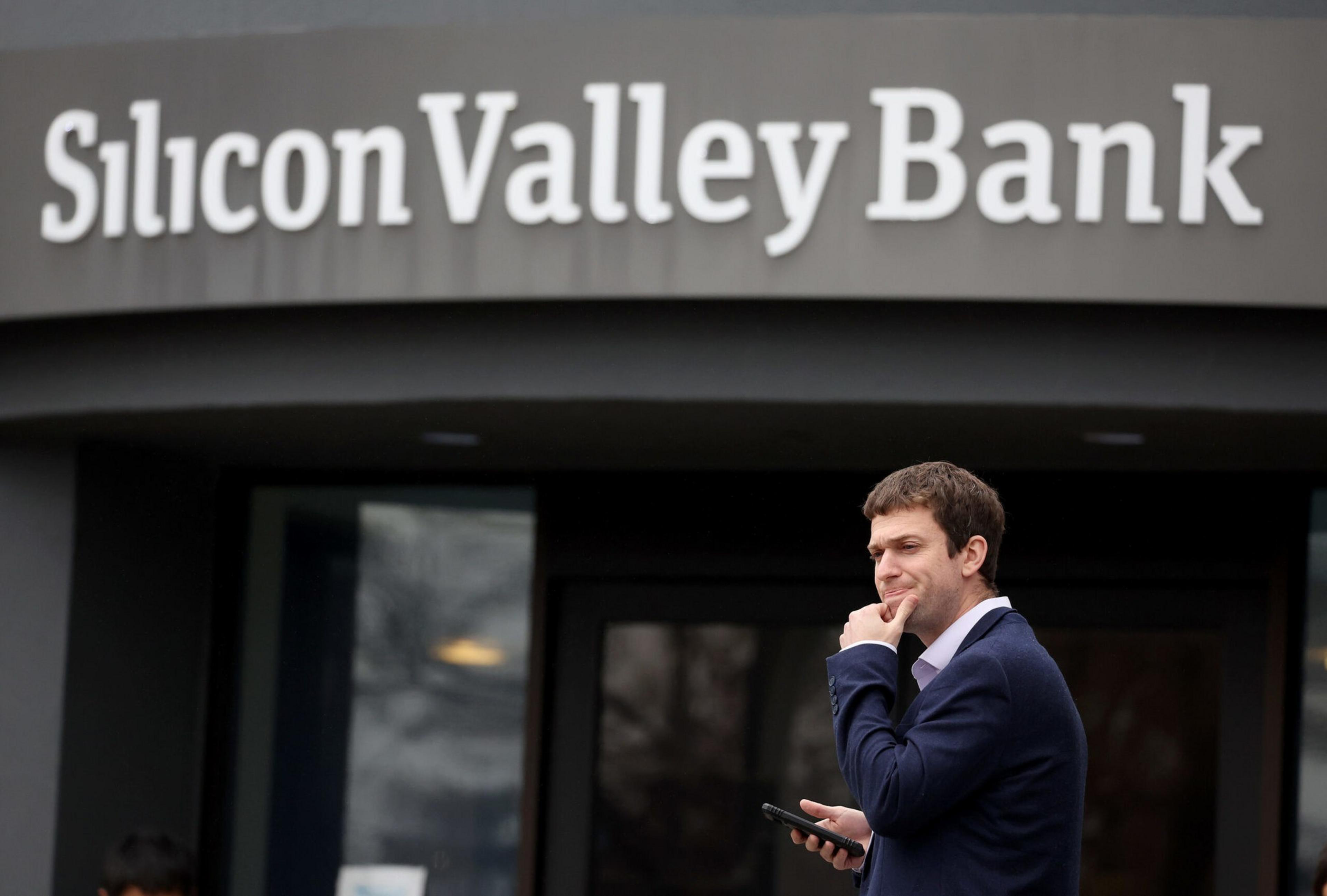Alex Mather, co-founder of The Athletic, was in the midst of speaking to students at a journalism conference in San Francisco on Friday when he abruptly ended his session to take a phone call.
“I gotta take this. Payroll is on Monday,” Mather said.
Mather was a customer of Silicon Valley Bank, a major financial partner for startups around the globe that abruptly folded Friday following a liquidity crisis and unsuccessful attempt to raise cash.
Federal regulators took control of the Santa Clara-based bank early Friday morning, putting nearly $175 billion in customer deposits under the control of the Federal Deposit Insurance Corporation. Customers were frozen out of accounts on Friday and scrambling, in some cases, to figure out a backstop to pay employees and keep their businesses running, sources doing business with the bank told The Standard.

“It’s a scary and crappy situation for everyone involved,” said Sheel Mohnot, a financial tech investor whose portfolio includes startups with deposits in Silicon Valley Bank (SVB). “Something like 50 percent of venture capital-backed companies bank with SVB, so it’s a huge percent of the industry.”
Now, both the investors and the invested are in a panic: As the federal government seeks to dole out insured deposits to SVB customers, which are guaranteed only up to $250,000, startups and companies that had more extensive assets with the bank are left wondering if they’ve lost it all.
‘Mass Extinction’ Event?
For years, SVB has been the go-to banking partner for tech startups.
The bank catered its services to the needs of startups, billing itself as a long-term financial partner with offerings like valuation services, international banking and rapid wire transfers, often acting in recent years as the lead underwriter and agent for large transactions at mid- to late-stage private tech companies.
“It’s pretty much this unspoken rule that every startup is supposed to put their money in SVB,” said one entrepreneur with more than a decade of experience in startups. “It’s standard Silicon Valley groupthink.”
While companies of all sizes work with Silicon Valley Bank, the bank’s failure could particularly affect startups that would not have been able to bank with more established institutions like JP Morgan or Wells Fargo, said Mohnot.
“A lot of startup people and companies, especially international companies—no other bank would bank them, other than SVB,” Mohnot said. “If you think about where they are going to go, I don’t even know.”
With the FDIC now in control of the bank’s assets and deposits, federal regulators will be tasked with providing SVB’s portfolio companies with their insured deposits, in this case, up to $250,000. The FDIC said they will make sure companies have access to insured deposits no later than Monday, March 13.
But the vast majority of its accounts had assets above that $250,000 limit: 88% of SVB’s accounts were worth more than that as of the end of last year, according to S&P Global. And venture capitalists are warning that smaller startups and companies who have all their eggs in SVB’s basket could face serious payroll issues, raising the possibility of mass furloughs or even shutdowns, exacerbating the tech industry’s yearlong streak of shrinking returns and sweeping job cuts.
Amid near radio-silence from the bank itself, founders, investors and government stakeholders have raised the alarm on social media as the tech industry grasps for answers.
Parker Conrad, CEO of the human resources startup Rippling, said on Twitter that his customers had experienced delays in processing payrolls (opens in new tab) because the company had relied on SVB to provide that service. After learning of SVB’s unexpected solvency issues, Conrad said that Rippling accelerated a planned transition to JP Morgan for payroll.
Garry Tan, an investor and entrepreneur who heads the local startup incubator Y Combinator, took to Twitter on Friday urging founders affected by the bank collapse to call their congresspeople and urge the FDIC and government to step in quickly.
Rep. Eric Swalwell, who represents parts of the East Bay in Congress, said in a statement Friday (opens in new tab) that he was working with colleagues to figure out how to ensure that deposits exceeding the $250,000 limit are honored: “If depositors lose confidence on the safety of their deposits over 250k then we are in trouble,” he wrote.
One crypto founder who requested anonymity said their company pulled its deposits from SVB on Thursday after growing worried about the bank’s prospects.
The bank told investors on Wednesday that it was selling vast amounts of securities and pursuing a deal to raise about $2 billion in fresh capital with the help of a private equity firm, spooking shareholders and tanking its stock.
“The most affected were people that kept a significant amount of their cash in SVB,” the crypto founder said. “A lot of startups don’t normally invest their cash. It’s just sitting there which, from my understanding, means it can be lent out. And if it can be lent out, it can be lost.”
Contagion Fears
Some investors and analysts speculate that the SVB failure was an anomaly tied to its heavily tech-centric customer base.
About 40% of its deposits were concentrated in early-stage technology and life science or health care companies—all heavily impacted by interest rate hikes, which has made it more expensive to borrow cash. That has meant companies have less money to sock away.

But the combination of macroeconomic conditions and flawed communication from SVB about its liquidity crisis led to a cascading wave of anxiety among investors, who reportedly urged their startups to pull money from the bank. Sources in the industry said that the sudden closure of crypto-focused bank Silvergate (opens in new tab) on Wednesday fueled fears of an imminent shutdown at SVB.
PayPal founder and venture capitalist Peter Thiel reportedly advised his companies (opens in new tab) to withdraw their funds from SVB on Thursday. The unique web of influence that key venture capitalists like Thiel have—not only over their portfolio of startups but also over other smaller financiers and tech industry players—likely accelerated the sell-off.
Several bank stocks fell sharply in the wake of SVB’s astonishing collapse, with shares of PacWest, First Republic and crypto-focused Signature Bank tumbling between 14% and 37% on Friday.
Brex, a financial technology startup, said on Friday that it would offer emergency bridge loans to SVB customers who migrated over to their services.
“Obviously Silicon Valley Bank has been a tremendous partner to the venture ecosystem for decades,” said Ashu Garg, general partner at Palo Alto’s Foundation Capital, the original venture firm behind Netflix in Palo Alto. “What’s happened is horrible and, frankly, very unfortunate because it didn’t have to happen.”
Garg pinned SVB’s troubles on the bank insufficiently communicating their capital plan to shareholders rather than stemming from the tech industry’s well-documented woes.
“Management let it spin out of control,” said Garg.